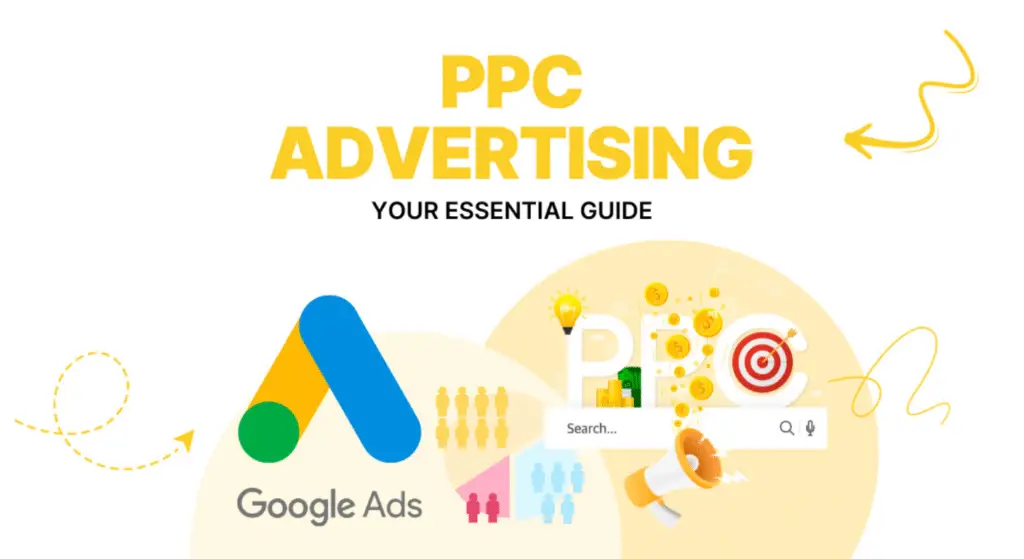If you need instant access to your website and increased sales, PPC (Pay-Per-Click) marketing is among the most effective tools you can use. But simply creating advertisements isn’t enough. You must manage them effectively. This is the purpose of PPC management.
In this article we’ll talk about the basics of PPC Management is about, and why you should have it, and the best way to efficiently manage it to ensure the best results for your business.
What is PPC Management?
PPC management is the process ppc management of designing plans, preparing, and improving your pay-per click ads. You can use Google Ads, Microsoft Ads as well as advertising on social networks like Facebook, Instagram, or LinkedIn. You only pay for when people click on your ads Therefore, you have to be sure that the clicks you get are worthwhile.
- A well-run PPC management can help you:
- Increase the number of visitors who visit your website
- Make wise use of your money
- Convert more clicks into leads or sales
- You can beat your competition in the search results
Why Do You Need PPC Management?
If you aren’t managing PPC advertisements, they could make you lose funds. It is possible to get clicks from people who don’t care about what you have to offer. Your ads could not be displayed at all if they aren’t relevant to the things people are looking for.
- However, when you can properly handle the management of your PPC ads, you could:
- Advertise your ads to the correct people
- Lower your cost per click
- Make more sales
- You will see more positive results over the long term.
- The Main Tasks in PPC Management
- Let’s break down the primary duties you must complete to manage the PPC campaign effectively.
Do Keyword Research
Keywords are words that people enter into search engines. To create effective PPC advertisements, you have to be aware of the terms your clients are searching for.
- Use tools such as Google Keyword Planner or Ubersuggest
- Find the keywords that best describe your products or services.
- Choose long-tail keywords (phrases comprising 3 to 5 words) because they are less competitive in the market and less
- Utilize negative keyword phrases (keywords you do not want ads on)
Structure Campaigns and Ad Groups
Once you have selected your keywords, you can group them into campaigns and groups. This allows you to create targeted ads that are pertinent to the searchers.
- Example:
- Campaign: Shoes
- Ad Group 1: Men’s Running Shoes
- Ad Group 2: Women’s Running Shoes
- Ad Group 3: Kids’ Running Shoes
Each ad group needs to contain the right terms and advertisements. This enhances the performance of your campaigns and helps you campaigns to manage. them
Create Great Ads
Your ads are what users are seeing in search results as well as on sites. They need to be captivating and attract people to click.
- Advertising tips:
- Use simple, descriptive language
- Include a prominent call to action such as “Buy Now” or “Get a Free Quote.”
- Incorporate your keyword in your headline and the description
- Be sure to highlight the features that make your product or service distinctive.
- Make use of extensions to your ads (like phone numbers, or even hyperlinks)
Optimize Your Landing Pages
If someone clicks on your advertisement full service digital marketing agency you will redirect them to the website of your company. This should be the page the ad promises and allow users to decide to take action (like buying or signing up).
- Some tips for landing pages that perform better
- Check that the site loads quickly.
- Keep the message brief and straight to the point
- Make a clear call to act (like an icon that says “Order Now”)
- Include testimonials from customers or trust badges
- Make it simple to use on mobile phones.
Manage Your Bids and Budget
You decide on the amount you’d like to pay per click or every day. If you do not manage your budget and bids carefully it is possible to overspend and not see the desired results.
How do you control your budget?
- Begin with a modest daily budget, and then increase it as you gain knowledge
- Test various ways to bid (manual or automated)
- Make your bids higher for words that can lead to greater sales
- Stop or reduce bidding on keywords that are not performing.
Track and Measure Performance
You must know the performance of your ads. Make sure you are tracking the correct metrics, to help you make your ads work better.
Important PPC metrics:
- The Click-Through Ratio (CTR): What is the number of people who click on your ad
- Conversion Ratio: What percentage of people decide to take action (buy or register)
- Cost per Conversion: The amount you spend to make one lead or sale
- Qualitative Score: The degree to which your ad is key word
- ROI on Advertising Spend (ROAS): How much profit you earn from your advertisements
- Make use of Google Ads reports and Google Analytics to track and improve outcomes.
- Constantly Improve (Optimization)
PPC campaigns need constant updates. You must be constantly making improvements to your keywords, ads, or landing pages.
How can you improve your PPC campaigns?
- Try different headlines for ads along with the descriptions (A/B testing)
- Include new keywords that work well
- Remove or stop the use of the words that do not provide any benefit
- Create new negative keywords to ensure that you do not waste time.
- Set bids according to performance and the time of day.
- Should You Manage PPC Yourself or Seek Assistance?
You can handle PPC advertisements yourself or have experts or an agency manage these for you. Both have pros and cons for both.
DIY:
- You can save money on agency fees.
- You are completely in control
- You can learn more about your company
- Expertise in hiring:
- You will save time
- You receive expert advice
- You may get faster and more effective results.
If you’re just beginning your journey in PPC with a small budget, you could attempt it on your own. If your business expands having assistance is the best option.
Common PPC Mistakes to Avoid
- There are a few errors that could hurt your campaigns:
- Not utilizing negative keywords
- There is no way to monitor the conversions
- Sending users to a bad landing page
- Displaying the same ad for each keyword
- Inability to check or refresh your advertisements
- Make sure you avoid these errors Make sure you avoid these mistakes, then your marketing campaigns are likely to run much better.
Final Thoughts
PPC advertising can bring you immediate results, but you have to manage it correctly. Effective PPC management requires selecting the most appropriate keywords, writing effective ads, driving visitors to relevant landing pages and monitoring the performance continuously.
Start one step at a keep track of what you’re doing, and then refine your strategy continually. No matter if you do it yourself or work with an expert and properly optimising the effectiveness of your PPC campaigns will result in more leads, greater sales, and more on investment.



Pingback: PPC Management How to Get Better Results from Your Online Ads
Pingback: Why Your Business Needs a Technical SEO Agency